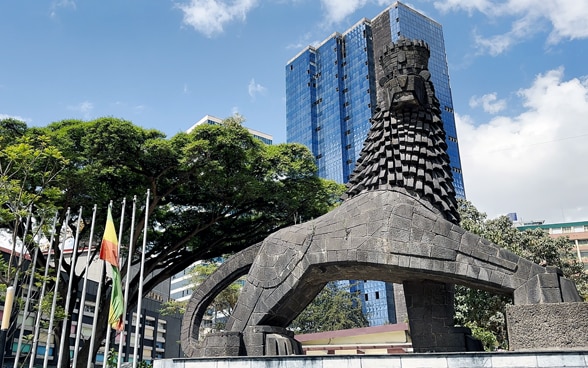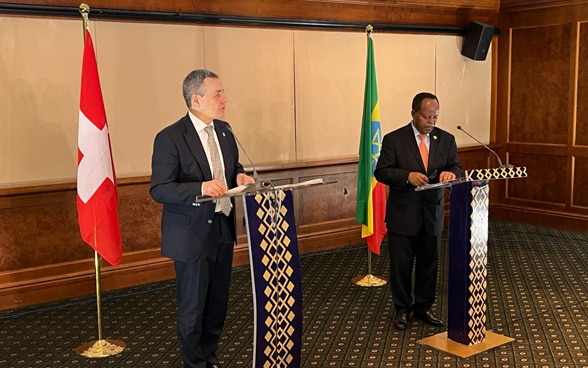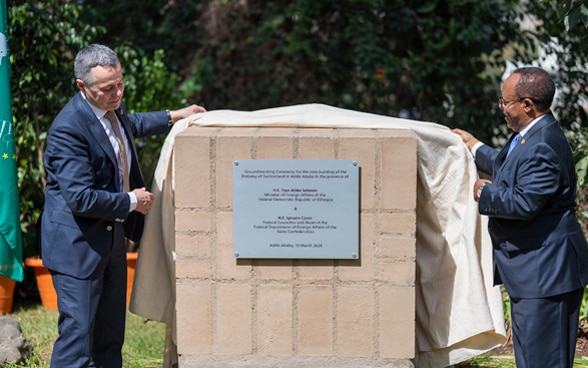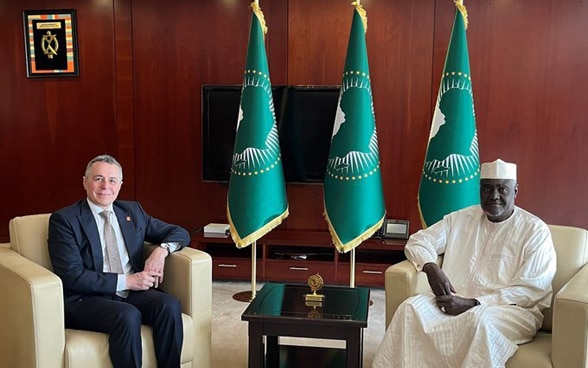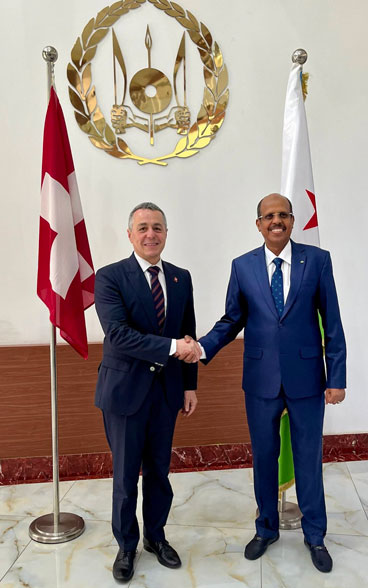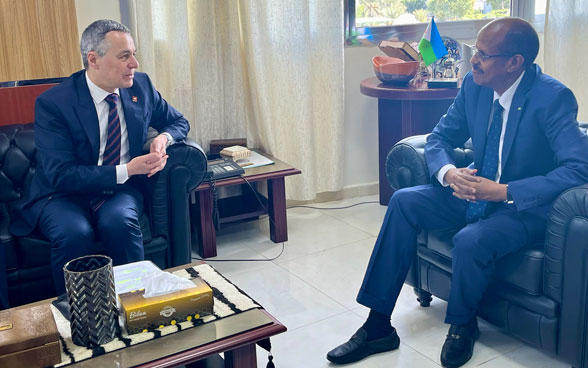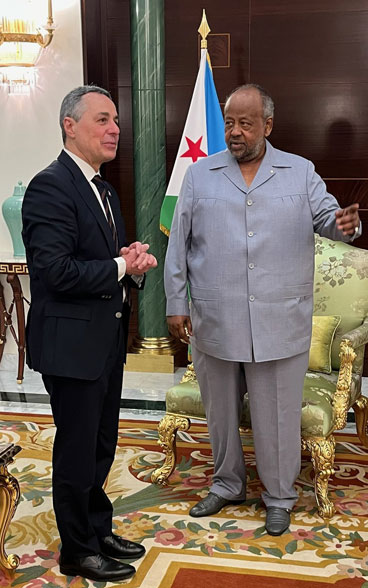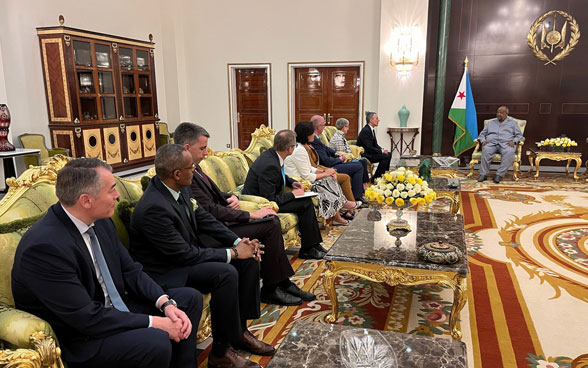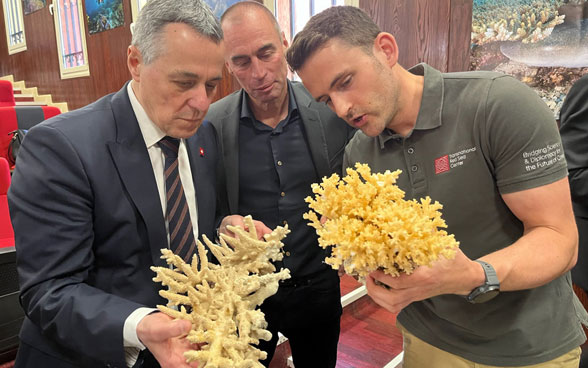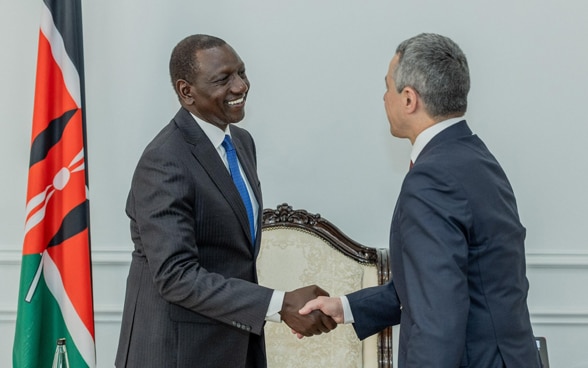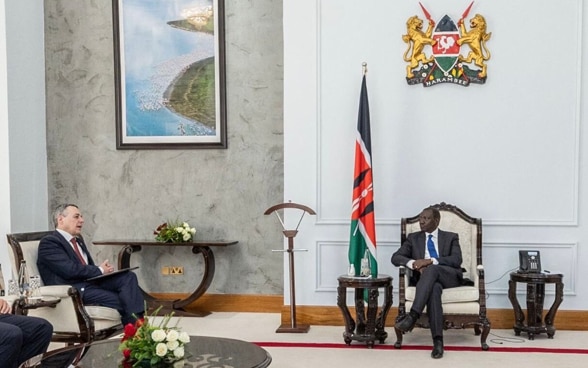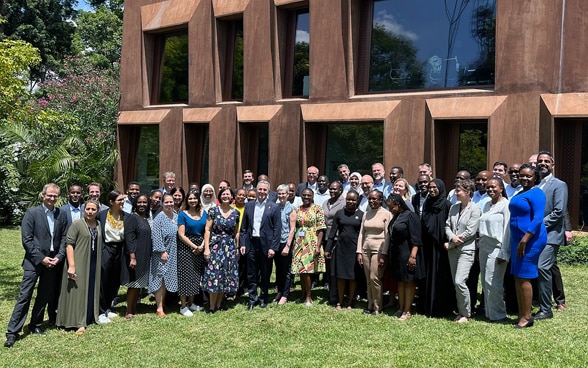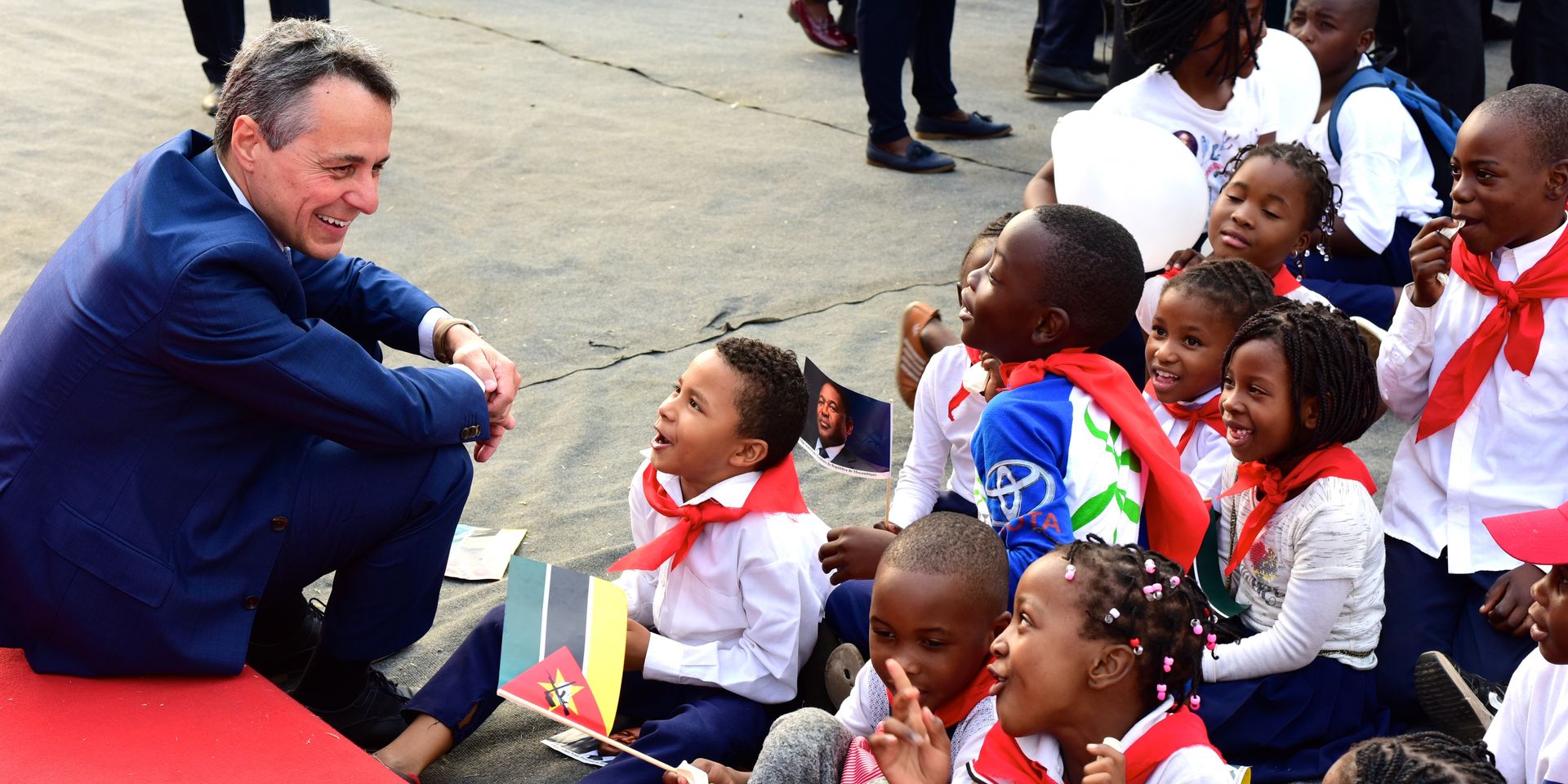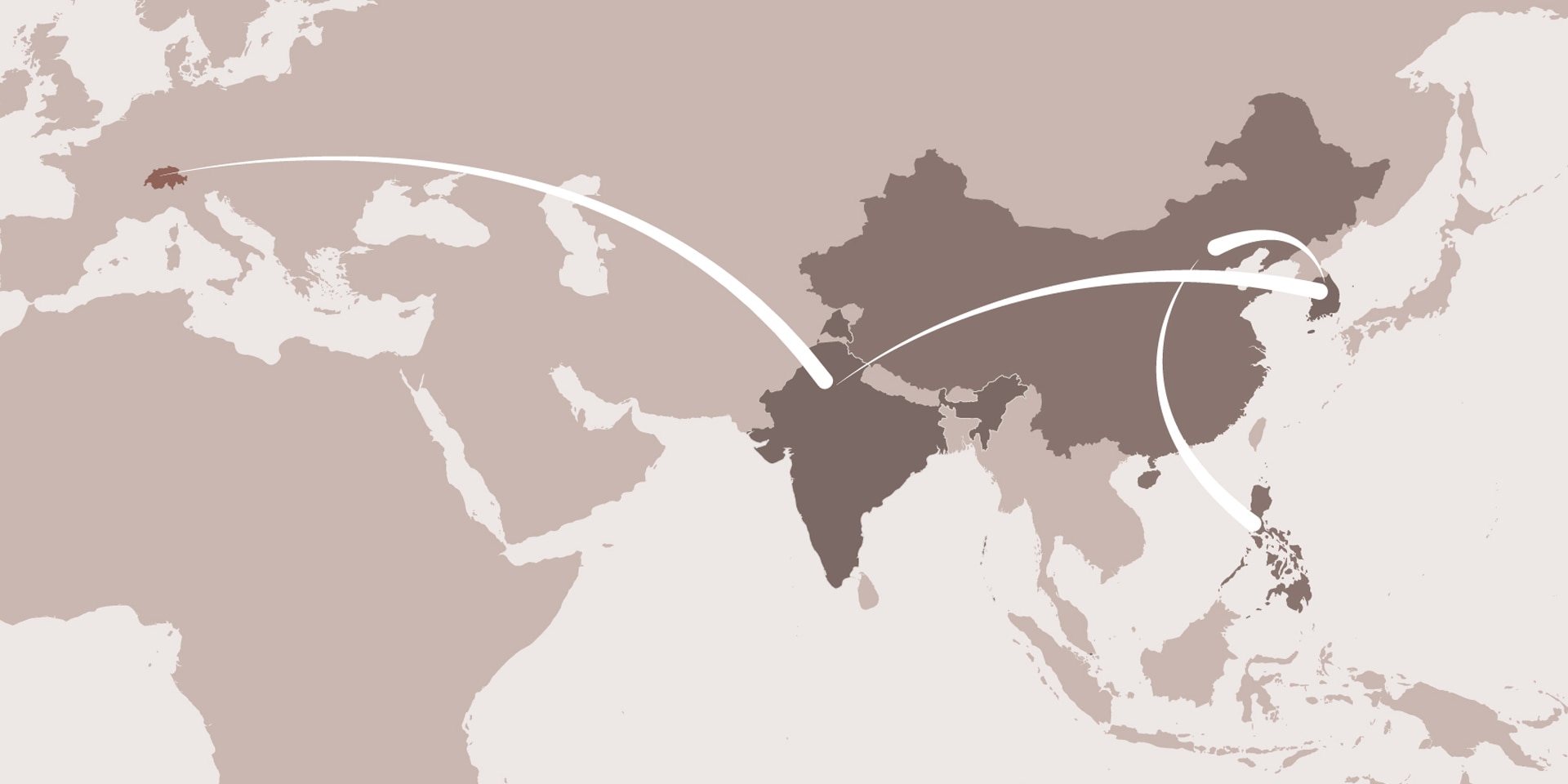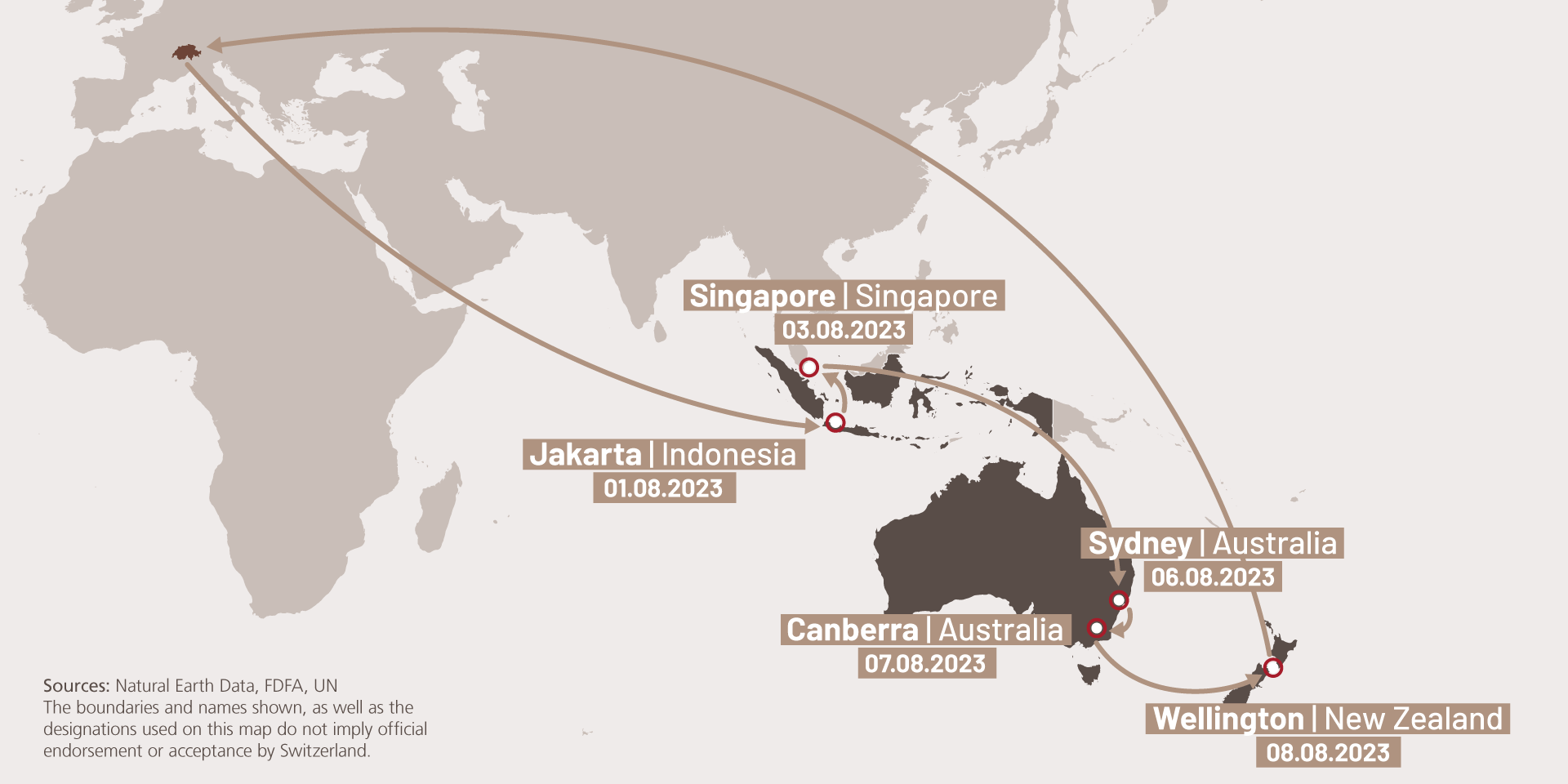Ignazio Cassis to make official visit to three African countries
Sub-Saharan Africa, a region of both challenges and opportunities, is playing an increasingly important role on the global political and economic stage. Federal Councillor Ignazio Cassis, head of the Federal Department of Foreign Affairs, will visit Sub-Saharan Africa from 17 to 22 March, with stops in Ethiopia, Djibouti, and Kenya. These three countries are key to creating stability and prosperity in the region.
Ethiopia joined the BRICS+ group in January 2024. The African Union is a significant player at the multilateral level. The United Nations Conference on Trade and Development's Economic Development in Africa 2023 report focuses on the continent's potential for global supply chains. The facts are clear. Sub-Saharan Africa is becoming increasingly important on the global stage and has considerable economic potential. While major challenges remain – poverty, governance and the effects of climate change – the African sub-continent also offers new opportunities and represents an increasingly influential voice in a fragmented world. Against this backdrop, from 17 to 22 March, Mr Cassis will visit three countries in East Africa: Ethiopia, Djibouti and Kenya.
Mr Cassis's visit is taking place at a critical juncture for the strategic planning and direction of the Federal Council's new strategy for sub-Saharan Africa, which is currently being drawn up and is set to be implemented from 2025. It is also in keeping with a priority set out in the Federal Council's new Foreign Policy Strategy 2024–27: fostering constructive relations with all regions of the world, particularly with members of the G20. The African Union (AU), which has its headquarters in Ethiopia, is part of this group of states.
During his visit to Africa, Mr Cassis will also engage in discussions on how to promote peace around the world – in particular on possible ways to achieve lasting peace in Ukraine.
Ethiopia
On the first leg of his trip, Mr Cassis will visit the Ethiopian capital, Addis Ababa. The city is also the seat of the AU, a pan-African organisation that plays a key role in addressing multilateral issues. Switzerland supports the AU, particularly in the areas of peace and security, migration, food security and human rights. Mr Cassis is scheduled to meet with the chairperson of the African Union Commission, Mr Moussa Faki Mahamat, to discuss African solutions to continental and global problems, as well as possible synergies and cooperation within the multilateral system, a particularly relevant issue given that Switzerland is serving on the UN Security Council until the end of 2024. The path to peace in Ukraine should also be a topic of discussion.
Ethiopia is important to Switzerland not only because the AU is based there: relations between the two countries have grown steadily over the past decade and have been consolidated through a series of bilateral agreements. Some 20 Swiss companies, including several multinationals, have operations in Ethiopia. The country is also described in the current Sub-Saharan Africa Strategy as one of the continent's 'lion economies'. In his meetings with President Sahle-Work Zewde and Foreign Minister Taye Atske Selassie, Mr Cassis will assess regional dynamics and review various areas of bilateral collaboration, including economic and trade matters, international cooperation and migration.
During his visit, Mr Cassis will also lay the foundation stone for the new Swiss embassy in Addis Ababa, alongside his Ethiopian counterpart.
Historical note
In 1878, Alfred Ilg, an engineer from the canton of Thurgau, was appointed by Emperor Menelik II to serve as an adviser to his government. Ilg exercised considerable influence on the country's foreign policy and played a crucial role in the construction of the railway line between Addis Ababa and Djibouti, which would be instrumental in the development of the Ethiopian capital.
Djibouti
Mr Cassis' visit to Djibouti marks a historic first for a member of the Federal Council. Djibouti is strategically important, particularly as a major East African port and host to a number of foreign military bases. Mr Cassis will hold talks with Foreign Minister Mahmoud Ali Youssouf and will also pay a courtesy call to President Ismaïl Omar Guelleh.
The Intergovernmental Authority on Development (IGAD), a regional organisation comprising eight countries in the Horn of Africa, is based in Djibouti. As chair of IGAD, Djibouti plays a critical role in peace efforts, particularly in relation to the conflict in Sudan.
Science diplomacy is also on the agenda for Mr Cassis's visit to Djibouti. He is scheduled to visit the University of Djibouti where he will meet researchers and students from the Transnational Red Sea Centre, a project launched by EPFL in 2019 with official support from the FDFA to protect Red Sea coral reefs, which are known to be uniquely resistant to climate change. A key objective of the centre is to unite the Red Sea countries in the common pursuit of scientific knowledge to protect the Red Sea corals.
Historical note
Djibouti gained its independence on 27 June 1977. Switzerland recognised the fledgling state on the same day.
Kenya
The final leg of Mr Cassis's trip to Africa will take him to another nation identified as a 'lion economy' in the Federal Council's current Sub-Saharan Africa Strategy. Besides being the region's economic powerhouse, Kenya also plays a major role in maintaining the political stability of East Africa and the entire continent. It is therefore a key partner for Switzerland. Kenya also hosts the largest Swiss expatriate community in East Africa (826).
Mr Cassis's visit also coincides with the 60th anniversary of diplomatic relations between the two nations, which were established in 1964. In May 2022, Kenya officially inaugurated its embassy in Bern in a ceremony attended by then President Uhuru Kenyatta, who was welcomed by Mr Cassis.
The high-level talks will primarily focus on advancing a range of bilateral matters. Peace and security, climate as well as science and technology are among the main themes of bilateral cooperation between the two countries.
Historical note
In 1955, a Swiss consulate was established in Nairobi, which is now home to approximately 100 Swiss nationals, with an additional 200 living in other parts of the country.
Development cooperation
Development cooperation also plays a pivotal role in Switzerland's engagement with Africa. In the Horn of Africa, for example, Switzerland runs a regional cooperation programme focusing on governance, food security, health, migration and protecting vulnerable communities. The programme is centred on Somalia but also covers the semi-arid regions bordering Somalia in Ethiopia and Kenya.
Swiss Cooperation Programme Horn of Africa 2022-2025 (PDF, 4 Pages, 4.4 MB, English)

